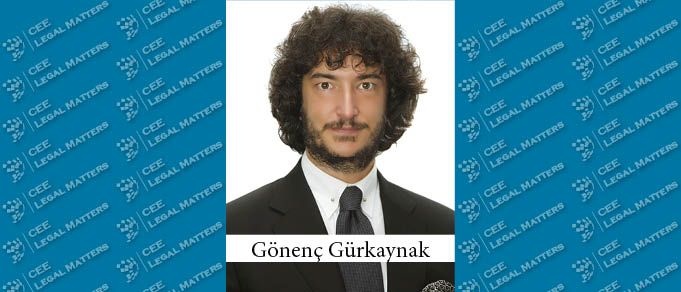I can pinpoint the exact moment when my interest in the law first flourished: I was 13 years old and my mother had given me a book called The Courage of their Convictions by Peter H. Irons, about 16 Americans who had fought for their rights and taken their cases all the way to the Supreme Court, and what I read resonated deeply within me. It later turned out that my mother had only given me the book to improve my English. But it opened the door to so much more.
During my time at Ankara University I had the opportunity to study under numerous respected scholars, and, perhaps because both of my parents were university professors, my initial plan was to make my career in academia; it actually still is. Once I started practicing law, it was due to this abiding desire that I continually tried to expand my knowledge by researching and writing about legal theory and practice, as well as by teaching classes as a guest lecturer at three universities – this has kept me motivated and “fresh.” Every year, in my final lecture, as they prepare embark on their legal careers, I tell my students the same secret to success: keep a keen eye on global developments, seek out uncharted territories and expand, and connect with people from all walks of life.
It was these considerations that led me to continue my academic journey by studying for my Master’s degree in the US, and later, by working in New York and Brussels, before returning to establish my own practice in Istanbul. At the time, in the early 90s, although the EU Commission had been ruling on competition law matters since the second half of the 1960s, Turkey had only recently adopted its competition legislation and established its Competition Authority; the area was ripe with opportunity. The rulings of the Commission, the US antitrust literature, and the decisions of the European national competition authorities were all indispensable and highly educational for a fledgling Turkish competition law practitioner.
The early 1990s was also a time in which Turkey flourished economically and foreign investments poured into the country. As in other CEE countries, a new market (in its case, with a population of 75 million) with a relatively inexpensive but well-educated work-force was attractive for investors, especially since Turkey could be a regional hub to gain access to both the European market and the Middle Eastern and African countries. Being a new market necessitated the creation of an investment arena with attractive investment incentives and transparent regulations, usually in line with EU acquis due to Turkey’s pending application for membership. The presence of a familiar regulatory foundation that allowed for efficient risk assessment was appealing for investors. Unsurprisingly, many global law firms that detected a business opportunity opened offices in Turkey and set up partnerships with local law offices, both due to regulatory reasons and to take advantage of the home-grown expertise of those office’s partners.
However, such economic and political interconnectivity between countries has not always been positive: the overly nationalistic and populistic winds which have now swept throughout most of CEE, as evident in recent electoral winners in Hungary, Poland, and Turkey, and of course Brexit, portend serious challenges. Fear of the “other” on both sides of the pond has unfortunately brought negative implications for human rights, whether they concern the rights of immigrants, foreign investments, or simply the freedom of expression, which is an issue that is especially close to my own heart. Although, to give credit where it is due, most countries that are at risk of veering toward nationalism/authoritarianism have not gone as far as implementing a total access ban on Wikipedia for over two-and-a-half years, which is more than I can say for my own country.
I firmly believe that, aside from all the exciting discussions of new areas of law that would stem from advances in artificial intelligence or the emerging business models of the “sharing economy,” we, as lawyers, may still need to fight on all fronts to ensure and protect basic human rights around the world. While we certainly do take courage from our convictions, just like the ordinary heroes I first read about 30 years ago, twenty-five years of legal education and practice have convinced me that it will also be our connections and collaboration that will ultimately ensure our success in not only our legal battles, but in our righteous causes.
By Gonenc Gurkaynak, Partner, ELIG Gurkaynak Attorneys at Law
This Article was originally published in Issue 7.2 of the CEE Legal Matters Magazine. If you would like to receive a hard copy of the magazine, you can subscribe here.
















